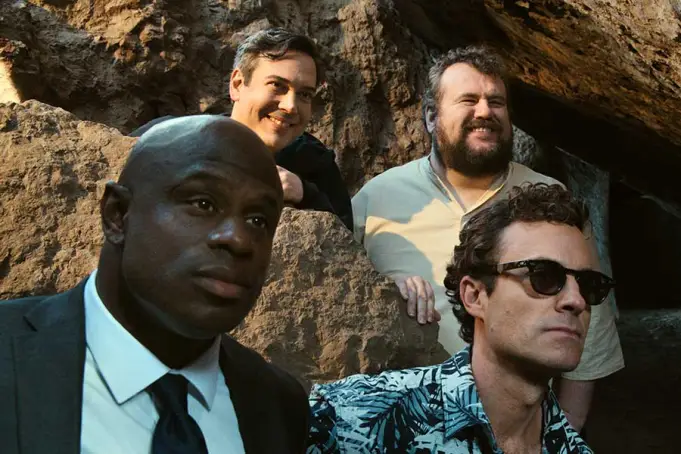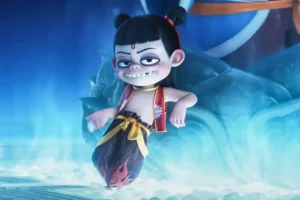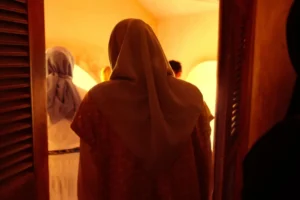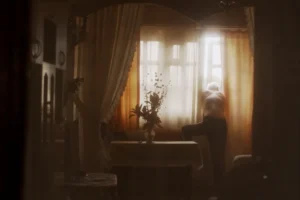
By William Earl
According To The variety “We had to pretend we were back when we were 13 and believed in movies, because we’ve been in this Hollywood world,” Armen Weitzman says when describing his new comedy, “The Napa Boys.” Weitzman co-wrote and stars in the film, which delights in spoofing tired Hollywood storytelling and franchise fatigue, while toggling between jokes that are exceedingly clever and thrillingly dumb.
All humor is welcome as a result of the mind-boggling concept: In the film’s reality, “The Napa Boys” is a long-running film series, and we’re watching the fourth chapter in the franchise: “The Sommelier’s Amulet.” The movies are a highly incongruous mix of “Sideways” and “American Pie,” as bros take on wine country and learn about themselves and life along the way. But, much like the “American Pie” series growing larger with straight-to-DVD chapters like “The Naked Mile” and “Beta House,” the intrusions of franchise bloat are encroaching on the series. “The Napa Girls” spinoff is robust but barely discussed, a new generation of Napa Boys is shoehorned into the third act, and producers of the series are eager to shake things up by adding new characters and misguidedly addressing societal woes like school shootings.
Make sense? It’s a concept that allows for Weitzman and co-writer, co-star and director Nick Corirossi to have a unique comedic sandbox. Smart jokes are funny, while eye-rolling bits get the safety net of being corny as a result of desperate producers trying to juice up their franchise. It’s a house of mirrors that will inevitably appeal to comedy nerds and begs for repeat viewing, in order to fully get on the film’s wavelength and catch all of the rapid-fire visual gags darting between the malleable script, much of it based on complex lore from previous films that don’t exist.
Producer Mike Rosenstein, an alum of alt comedy projects like “The Eric Andre Show,” “Another Period” and “The Birthday Boys,” says that one of the project’s north stars was the 2001 spoof “Wet Hot American Summer” — the director of which, David Wain, has a role in “Napa Boys.”
“You tap into this feeling like when we all first watched ‘Wet Hot,’” he says. “The feeling of freedom and the comedy where you’re tapping into this unique sensibility. It’s refreshing and its people like you. You really tap in, and that’s exciting — and they really tapped in at those TIFF screenings.”
The film had its world premiere in September at the Toronto International Film Festival as part of its Midnight Madness section, which is largely home to bloody horror and wildly NSFW fare. While “Napa Boys” is comparatively tame, its specific brand of humor made for some friction in an initial screening full of professionals — namely a scene where Corirossi’s character mixes up medication and does terrible things to a cask of wine.
“It initially had a press and industry screening in IMAX,” Corirossi says. “We shot it for IMAX, and the barrel scene, around that point, older buyers scoffed and dramatically, almost in a ‘Brown Bunny’ way, walked out. There was even someone who left a review that was like, ‘How dare they desecrate and reduce the name of IMAX by showing this film!’”
“People really are laughing so hard at that point, or they have a strong reaction, which is the great thing about this movie,” Rosenstein adds.
Although some industry squares might have rejected the film’s antic humor, it has found impressive superfans: Jason Mewes and Kevin Smith make a cameo as Jay and Silent Bob, Nathan Fielder is an avowed believer and Jerrod Carmichael hopped on as an executive producer.
“What Armen brings to cinema is sincerity, and an uncompromised joy, and I was happy to be a part of this project,” Carmichael said in a statement to Variety.
The “Napa Boys” team is currently fielding distribution offers and hopes to bring the film’s joy to theaters, where comedies have become increasingly rare.
“Audiences are hungry to laugh in theaters together. That’s why I think ‘Napa Boys’ is really going to work,” Rosenstein says. “When you do get people together and they’re laughing like this, it’s something else. So the idea is to really get it out there and let people see it together.”
Ultimately, Weitzman says, while some people view the humor through an ironic or detached lens, the movie is made with an honesty that isn’t always depicted in comedy.
“We’re living our dreams, and it’s all the movies of our memories, like ‘Tenet’ or something,” Weitzman says. “It’s just, ‘Shame on you, the audience, for thinking it’s weirder or worse because you’ve been programmed for it.’ It’s very wholesome. We showed them something not AI, but from our human souls.”
But, of course, sequels could happen.
“The trilogy is planned out,” Corirossi says. “So this would be ‘A New Hope.’ And then we have the other two already. Now, it wouldn’t necessarily be perfectly in sequence the way that you would see them. But we already have it like Lucas.”






